
Announcement
Collapse
No announcement yet.
Around the world on a GS850G for a cause
Collapse
This is a sticky topic.
X
X
-
 Hacked850
Hacked850 -
 toejams1
toejams1
Comment
-
 Skateguy50
Skateguy50
missed a few calls from him when he was checking in on me with by broken collar bone. Last I heard he is doing well but also think he still has computer issues, hence the lack of posts.
Comment
-
 shirazdrum
shirazdrum
The Damned Bolivia – Part One
A whole century later, I must have had the same look as the Sundance Kid as he stepped off the train in Bolivia. I stood in front of a mound of rubble, no sign, no road, no nothing, but a narrow mule track straight out of the 1900 which marked the border of Bolivia.
To tell the story of the damned Bolivia, I must first tell the hellish story of getting to Bolivia. Imagine yourself sitting under the August sun in Texas, dressed in thick black Kevlar pants and jackets, full-face helmet, pair of gloves and black combat boots, then fancy sitting on top of a black motorcycle with 300lbs of film and travel gear with an engine hot enough to fry bacons on. Now add another person with the exact same outfit to your pillion and for the finishing touch, imagine sipping boiling hot water and you might get a grasp of what I felt as I left the capital of Paraguay for the Chaco region to the north. I visited the Chaco in Argentina in winter and came out just short of a heatstroke, yet I was riding in the middle of summer to one of the most isolated and hottest places in South America.
The ordeal of getting a visa for Bolivia is a story of it itself, but to not make the long story longer, the Bolivian Embassy doesn’t really give you a visa. What they give you is a piece of paper that you take with you and then you have to find the immigration office somewhere past the border deep in Bolivia to get your actual visa. And as everything takes a million years to get done in South America, my visa process took so long that when I finally got the paper, I had only two days to get to the border, almost 900km away.
Visa in hand, I went to the parking garage to bring out the motorcycle for oil and tire change, and as Mr. Murphy had it, the battery was completely dead, reading zero volt on the voltmeter. I took out the battery and took it to a shop to recharge, and I had to wait until the next day to get it back. When I finally got the battery back, I tore the bike apart until I found the short but it was already too late to get on the road. The next day I changed the tires for a pair of new dual sports, changed the brake pads, and loaded the bike for the marathon to the border with only 12 hours left on my visa.
Paraguay has very nice highways, and discounting the occasional wandering cows, you can rack up pretty good time, but this road wouldn’t end. From 10am to 7pm, we rode straight shot only stopping for gas and a short lunch break and we made it to Mariscal Estigarribia, the last frontier town in the Chaco in Paraguay. We got the passport stamped and I was officially out of the country, although we had 250km from Mariscal Estigarribia to the border and 150km more to Boyuibe, the first town in Bolivia. It was already 7pm and the sun would set in an hour or two so we kept pushing on to get at least closer to the border.
As we went deeper into the Chaco, the road started to get worse and potholes the size of a fin-tailed Cadillac started to cover the road. I double checked a few times on my GPS and it seemed that we were going the right way, but the total lack of traffic was telling me that either people don’t go to Bolivia for some reason or this was going to be a road from hell. As my luck had it, it turned out to be both. Potholes steadily grew in size and worse yet, the ground turned into some sort of sand that was finer that Baby Johnson ass-powder. Going on a straight line was impossible and the more I dodged sandpits, bigger and wider versions kept showing up. It was like a DMV test, except that if I ran over a cone, I would send us crashing in a ditch.
I was thinking that there is no way in hell that we could make the border, but there was nowhere to stop either. Both sides of the road were like the Atlantic beach with that powdery stuff going down to China and I just kept going with hope of finding a solid ground that we could crash at night. As I was thinking about all this, we hit a deep sandpit and went flying on the ground. We were Ok but the bike was stuck. We were both exhausted from the long ride and as much as we tried, we couldn’t even upright the bike in the sand as we kept slipping on the soft ground. There was nothing we could do so we waited, hoping that there would be another idiot going the same road who would give us a helping hand. A cigarette or two later, we spotted a fruit truck in the distance and our deliverance came in a form of an 8 man team. All these guys pushed and shoved and I kept on the throttle until the bike made it out of the long pit.
We thanked our saviors and knowing that there won’t be a sole on the road if we got stuck again, I chased after them and got in front just in case. I don’t remember how long we rode in the dark but I know that it felt like eternity as we kept going in and out of sand pits, and the bike trashed about every direction. Finally we saw a light. A lone dim light of a common house on a cattle ranch and I raced for it. We asked for permission to stay there and we were home free – for the night at least. The fruit truck arrived a few minutes later and we bought a dozen bananas and a giant watermelon for the dinner.
The watermelon turned out to be as white as Dick Cheney, but I didn’t care, I was so dehydrated that all I wanted was something with water in it. We pitched the tent next to an old abandoned Jeep, and a three legged calf, and retired for the night. My face was so burnt from the sun and it was so hot outside that I stayed awake for the longest time before falling asleep in my own sweat with the three legged cow howling nonstop next to my head until dawn. As it would turn out, the road to hell was just about to begin; the past section would be a walk in a park in comparison. Stay tuned.
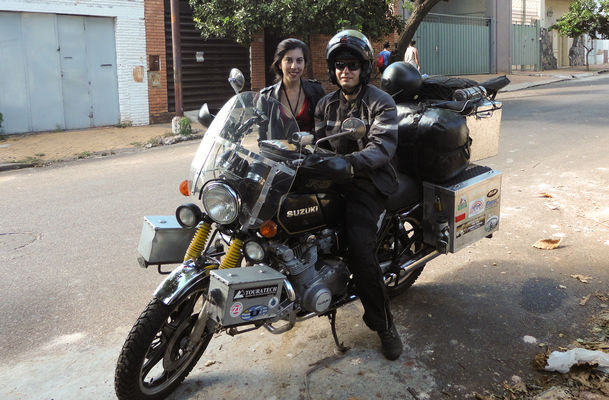
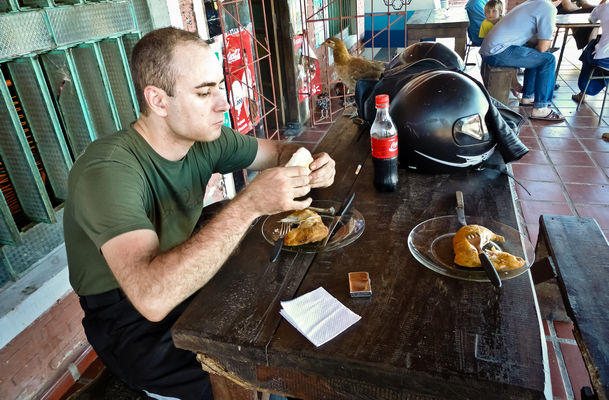
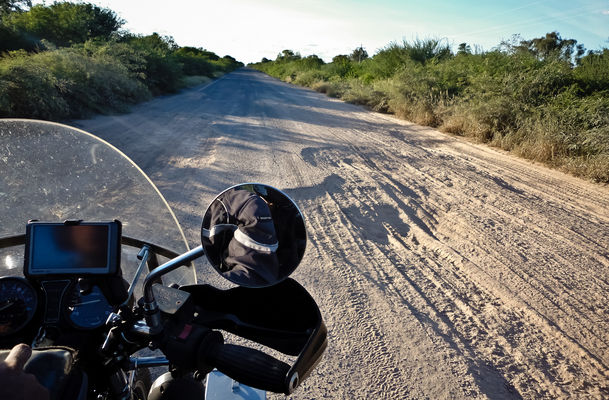
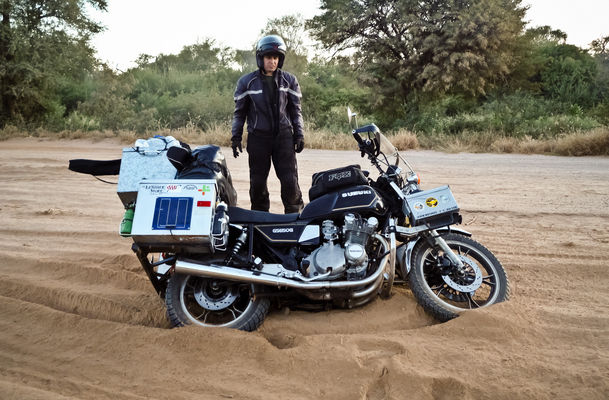
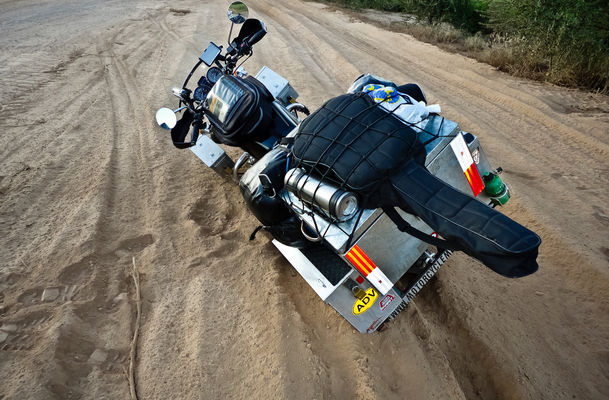
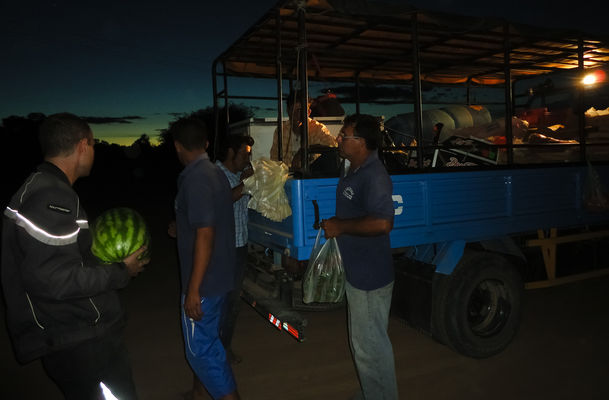
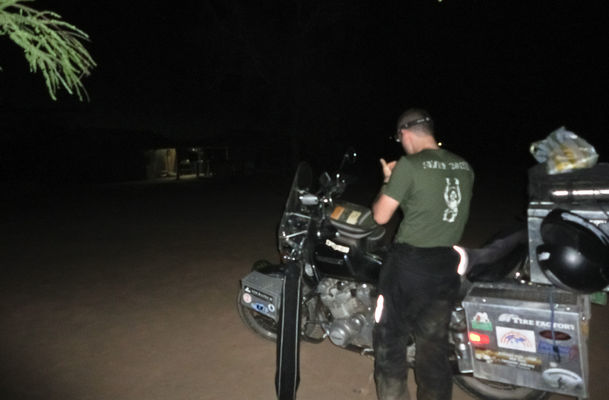


Comment
-
 toejams1
toejams1
Hello Chris. I hope things are better for you now than what you described in your last segment.
Comment
-
 shirazdrum
shirazdrum
It will get much worse before it gets better Although i'm OK now. Just in case anyone is planning go to Bolivia, stop until this story is over.
Although i'm OK now. Just in case anyone is planning go to Bolivia, stop until this story is over.
Comment
-
 shirazdrum
shirazdrum
The Damned Bolivia – Part Two
It wasn’t until I saw the road in daylight that I knew what kind of misery I was in for. This road was supposed to be paved, but it was under construction at the moment and the ranchers said that it would be like this for another 100km. As it is customary in South America, when you hear a number related to distance, you should always multiply it by three for good measure so I figured the whole way to Bolivia would be like that.
And the sand started yet again. Now that we could see better, we kept on zigzagging and making a miserable progress but it all came to a halt when I caught a sight of a water truck spraying the road. The guys on the truck stopped to see what in the hell we were doing there and sent us off with evil smiles and good lucks on our muddy journey. I literally rode 100 yards before I stopped the bike and gave up. The fine sand mixed with water created a thick gravy and the giant bike wasn’t going anywhere in this muck. The tire grooves were filled with mud with no traction whatsoever and I had no choice; I pushed the bike to the sandy shoulder.
For the next hour, I rode with both of my feet on the ground, frequently asking Lourdes to get off and walk in hairy spots. Sweat kept dripping off my nose and sand filled my mouth and the road went on. The mud started to dry out gradually in the sun and all there was left was fine sand again. Now I had more appreciation for the sand and I just picked up speed and ripped through it. The faster I went, the easier it got until it felt like I was riding on the clouds. The bike would sink momentarily but would spring back up and keep going. Lourdes asked me if it was dangerous going this fast, and my answer was “Yes, but If I slow down you’re going to end up walking” and I don’t remember hearing a word from her again.
Patches of asphalt started to show and we picked up speed and life got easier. We filled up the gas tank from Pepsi bottles at a small shack and pushed for the border. At last we made it. At this border, there were two wooden outhouse looking offices with two guys running the whole show. Checking out the bike at the Paraguayan side went smoothly and we walked in the Bolivian office to do the paperwork for temporary importation. The guy kept looking at the documents and kept making excuses and asking stupid questions. I got the feeling that he was setting us up for bribe and I wasn’t budging. Then he finally said it: “You have to pay $100 USD here for the fees”.
My answer was NO, there aren’t any fees for importation of temporary tourist vehicle. In the middle of the shakedown, some other guy walked in and all of a sudden he forgot all about the “fees” and we bolted out. We rode a few feet and we had to stop. There was no road. Not even a sign. There was a mule track barely wide enough for a car next to a giant tree that blocked the way with a mound of dirt on it. I was confused. I looked around but there was no other way. This was Bolivia.
There seemed to be a semi-paved road above were we were standing, but it was blocked with trees and dirt piles. Down below in the ditch, this secondary hell of a road was to be used until the main road was completed. It was covered in soft sand, deep potholes, lose rocks and broken beer bottles. So our Bolivian odyssey began. In only 10km the bike bottomed out a thousand times, every bolt was shaking lose and at last we hit a deep pothole so hard that the giant camera box on the back broke and stuff started to fly out on the road. This road was impossible. Now I started to really see why there hadn’t been a single soul on the road for the past 300km. Bolivia was a ****hole and Paraguayans knew better not to venture it.
We gathered up the banged up stuff from the road and devised a new plan. If I could climb up the ditch and get to the main road, we would be home free. The trouble was that the ditch had deep trenches dogged in it by the construction workers to prevent this exact scenario. I kept on looking and finally found a spot that seemed promising so I gave it hell. The bike shook up and down and miserably climbed up to the heaven above. No more potholes, no more sand.
We celebrated the victory by drinking ****-warm water and got on with it. But 2km ahead, the road ended again with trees and dirt blocking it. We climbed back down the ditch and as soon as we found another suitable spot, climbed back up on the road. Sometimes the blockades were passable and I would run them over, but most of the time we had to get back down and up again. Sometimes we had to backtrack a few kilometers to where we went up because there was no way to get down. Long story short, we were covering 30km an hour hill climbing with an 1100 ponds street motorcycle.
We were stopped by the military at a check post and searched. These guys looked like jungle rebels, no shirts, sombreros, camouflage pants and guns. At least we found out for certain that we were in Bolivia and going the right way. We kept on ditch-hopping and made our way towards the town of Boyuibe where there would be food, gas, a bank and we could get my visa. But things in Bolivia are never that simple. On one of the ditch-climbs, the bike came out short and the rear tire slipped on the brush covered sand and send the bike flying. This time the bike was lying on its side, leaking the precious fuel and transmission oil all over the ground. Now we were going north aimlessly with even shorter supply of gas and low transmission oil.
Out of the corner of my eyes, I saw a sign for the Immigration Office in the middle of nowhere. I was thinking that this can’t be it; Boyuibe is a town with banks, gas stations, and actual human beings in it. At least that’s what I was told at the Bolivian embassy in Paraguay. Nevertheless I turned around to check it out. This place didn’t resemble a government office. It was a stable with animals running around and no one in sight. We knocked on the door of a house nearby and a guy with no shirt walked out and said that this was it. I turned to Lourdes and the first thing I said was there is no bank here!
When we left Asunción in Paraguay, I took out 800,000 Guaranies (roughly 200USD) and that was the last time I saw a sight of an ATM machine. With almost no gas station taking credit cards, we resorted to paying cash for gas and food and kept looking for a bank that never came. Now we were at the immigration office, where I had to pay $130 for my visa and all I had left was barely enough for a few liter of gas!
A bald headed short guy came out of the house and took charge of the process. I tried to tell him that we had to get to a bank to get the money for visa but he kept shushing me, telling me to be quite and asked for a photocopy of my passport. I said I didn’t have one and explained that the embassy already has all the information, including million copies of everything and this paper is all he needs but he flipped out. He huffed and puffed, cursed at us and shoved a form in front of me to fill out. I filled out the form and tried to tell him again that I had no money but he cut me off again and told me to be quite. This was ****ing unbelievable but I just went with it. He kept saying that he was doing us a favor, and wouldn’t let me talk.
Then he looked at my passport. In my passport, it states my birth place which is Shiraz, Iran. He flipped out again and said with utmost hatred that Iranians are not welcomed in Bolivia. “You can’t come in”. It’s impossible to describe how long it took to explain to this waste of a ***** that he was holding an American passport, and my birthplace had nothing to do with anything. He had to call for his wife, and all the other dimwitted short people he had around the stable to hold a council on whether to let an Iranian terrorist inside the “wonderful” country of Bolivia or not.
To say that I was furious is an understatement. The only thing kept me from killing this pest was the mere fact that I was out of gas and couldn’t get far. Finally he was convinced and before I could tell him that I had no money, he slapped the visa (while still cursing at me) in the passport and asked for $130 USD. Then came the moment of truth. Oh god, his face was priceless when I could finally get a word in and tell him that I had no money. He threw the passport in his desk drawer, locked it and walked away. We were kept captive, knowing that it was Saturday, and there wasn’t a bank for another 200km to the north or 650km to the south. Welcome to Bolivia.
Stay tuned.
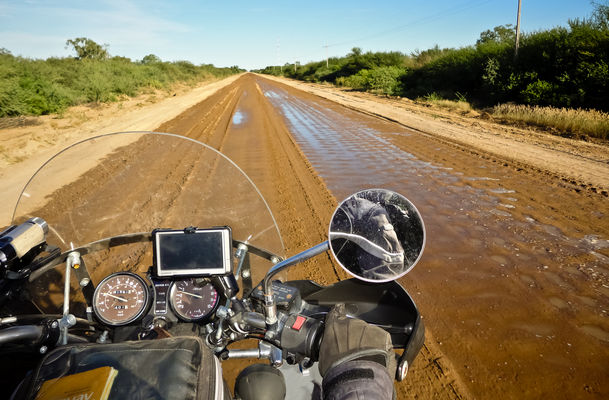

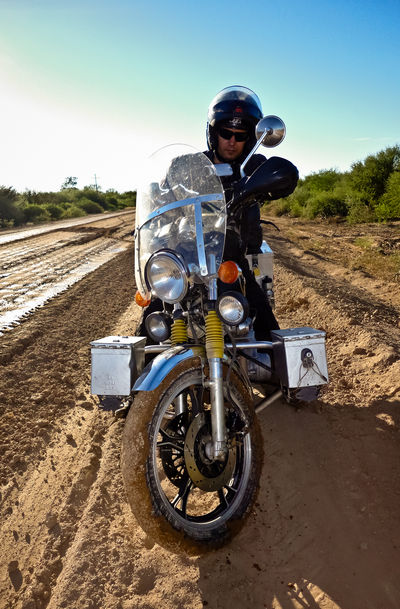
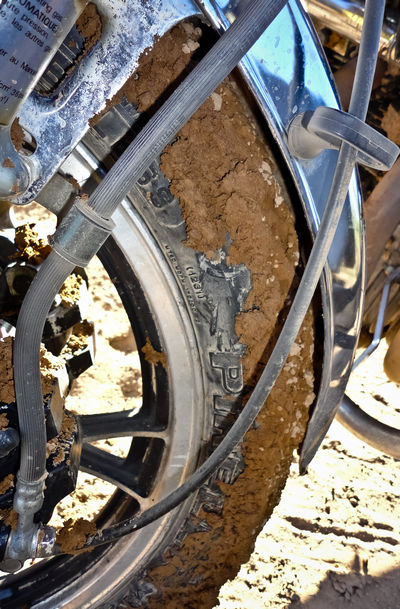

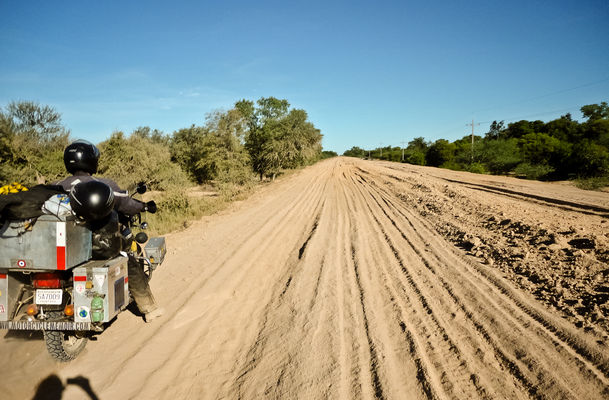
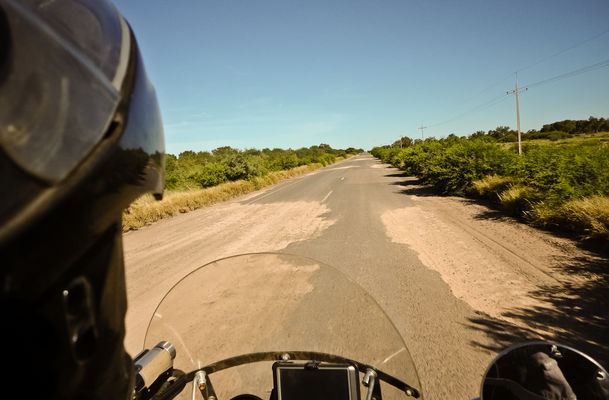
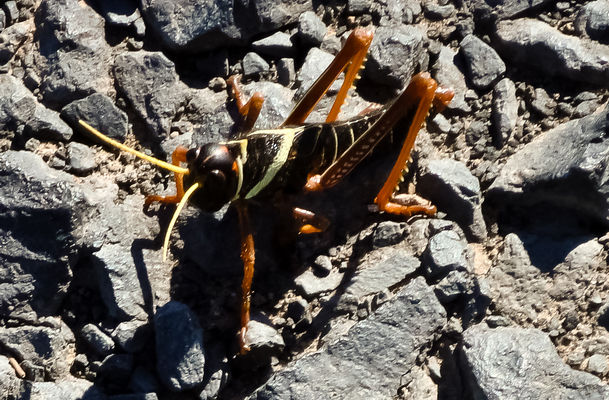
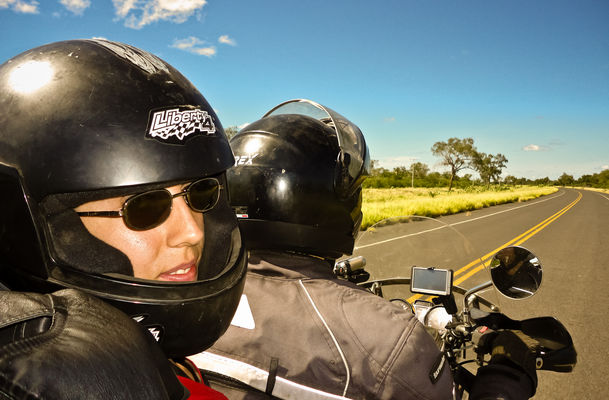
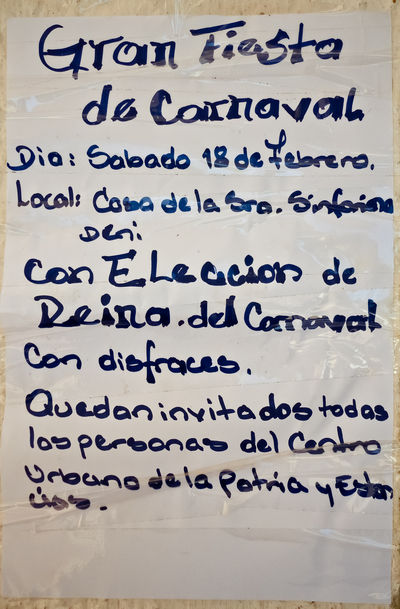 Last edited by Guest; 04-09-2012, 11:05 PM.
Last edited by Guest; 04-09-2012, 11:05 PM.
Comment
-
 shirazdrum
shirazdrum -
Chris,
I dont know if Paul is still in Bolivia but if your stuck it might be worth trying to contact him....
Hi Dave
If Chris gets any where near LaPaz or Caranavi tell him to feel free to call me or stop in. I live in Caranavi just north of LaPaz. If there is any way I can help him I would be more than happy to. It is rainy season in Bolivia right now and very wet and muddy. A lot of roads are closed.
Hi Dave
Just realized it might help if I gave you some phone numbers.
Home: country code (591) 2-823-2350
Cel. Phone (591) 7-959-9917

82 1100 EZ (red)
"You co-opting words of KV only thickens the scent of your BS. A thief and a putter-on of airs most foul. " JEEPRUSTY
Comment
-
 shirazdrum
shirazdrum
Hi Dave, Thanks for the contact again and I was actually thinking about it but we never went to that part of Bolivia. Please thank your friend for opening his home to me nevertheless. I really appreciate it.
Comment
-
 shirazdrum
shirazdrum
The Damned Bolivia – Part Three
Unlike the majority who travel with sightseeing as their goal; I have no interest in museums, touristy spots, beaches, sky scrapers, nice roads, or historical sites. That doesn’t mean that I don’t enjoy all these things, I do, but the drive behind traveling for me is to know the people themselves not what they have created or destroyed.
I was going to Bolivia to try to establish a local branch of our organization so when another fiasco like the 2011 floods happened, we wouldn’t be at the mercy of the utterly corrupt and incompetent government of that country to give a helping hand to their victims. But many things changed that idea and it wasn’t the hot weather or the bad roads either. It was the Bolivian people themselves who did that.
What I’ve written and will write until the Bolivian chapter is done is my first-handed account of this journey, whether you find it amusing, unbelievable or naïve, it’s the reality and I won’t apologize or change a single word of it. So if you are looking for beautiful pictures of majestic mountains and Indians in colorful dresses, you are in the wrong place. Not that Bolivia is not a beautiful country, which it is, and not that there aren’t any pretty things to see, which are plenty, but when it comes to hospitality, warmth, generosity, honesty and decency, Bolivia fails on a grand scale.
Ad this is not an opinion of a gringo in a strange land, this is the opinion of most anyone you meet in their neighboring countries, with Argentina being the champion for a damn good reason too. From the southernmost part of Patagonia to northern Jujuy, there isn’t a place that hasn’t been taken over by Bolivian immigrants and when I say taken over I mean it literally. Imagine the immigration chaos in the united states with all kinds of people screaming that these immigrants are taking over our jobs – well, now imagine these same immigrants take over your land or your house when you went on a vacation, and come back to see another family living in your living room and you can’t do a thing about it. That’s the reality with the Bolivian invasion in Argentina.
Not only the Bolivian immigrants abuse the soft and too welcoming laws of their neighboring countries, they do it with utter disrespect, destruction and air of arrogance that I have yet come to see anywhere else in the world. From parks to residential buildings, there isn’t a day that a Bolivian family doesn’t occupy someone else’s possession unlawfully and take it as their own. Take a trip to Buenos Aires alone to see it in action for yourself.
I was aware of these facts by my numerous trips to Argentina and even witnessed it first handed myself one day when my friend Tati and I were going to his (empty) uncle’s house in Mar del Plata and we walked in on a Bolivian guy already living in the house. But I dismissed this odd behavior as hardships of immigration and desperation, but to come to witness the same behavior in their own country among their own peers is something you can’t ignore.
From the moment we stepped foot in the customs office at the border and being robbed right off the bat, to refusal of water at the military checkpoint, to when we stopped at the immigration office, 200km deep into Bolivia, my mind was just dismissing one ****y Bolivian act after another for a few bad apples in a bunch until we met the whole family of Bolivians who were to insult us to no end, for no reason other than that they could.
Not only the immigration person (I don’t think you can call a no shirt fat guy behind a desk an officer) insulted, ridiculed and bullied us around, he was joined by his wife, a bigger bitch than himself, and two other con artists who joined the prey. I asked the guy to take out or void the visa out of my passport as I had no intention of going into Bolivia anymore, but he refused. He wanted money and refused calling the embassy as well. He kept calling us any profane word that he could remember and wouldn’t null the visa. Then the good cop bad cop started, one guy came over and said what valuable do you have on you? And this was my time to give them back a little taste of my land. They called me an Iranian terrorist not knowing that in 7000 years, among many things like art, mathematics, civilization, poetry,… which these jungle duelers were clueless about, Iranians have also mastered selling feathers to Indians and making them believe they got a good deal.
I brought out two video cameras out of my tankbag, one a worthless broken Canon that I should have trashed a long time ago, and another a good but cheap HD camera that worked. I told them that the canon was $250 (a big lie) and the small HD was $130 (also doubled the price), but I’m not giving them the Canon for $130. That automatically fixated their greedy eyes on the broken camera. But would they just take the camera? No way. They were worse than that. The negotiation took over an hour and Lourdes once heard them saying that they have some money, take the camera and all their money too! And she relayed the message to me in English.
First they wanted all the money (we had just enough Paraguayan money for a tank of gas), and both cameras in exchange for the visa. I said hell no. Then they said that deal was off again and we were captive once more. Then the negotiation went on and finally we agreed on the gas money and the Canon camera. I handed them the camera and the change, got my passport back and told the guy one last time to at least say welcome to Bolivia. His reply was “you are not”. I wished them happy filming with their wonderful new camera and we jumped on the back of the bike and got the hell away.
They had a smile on their face as we left and we had a bigger smile on ours. I wonder if they ever understand why they got screwed, but I doubt it. I wonder if they ever figure out why their next event is filmed on a broken old camera with no sound that cuts off with the smallest shake. I doubt it. Best of luck to them anyway. When you deal with hyenas, you got to put the decency aside and treat them the way they treat you. That’s the law of the jungle and in Bolivia it’s the only law.
Now that I had my passport, I decide to put as many miles as I could behind us so I rode like a bat out of hell. Instead of going on the detour road again, I hopped on the fresh asphalt of a new road on my GPS and rode straight-shot without stopping until we came to a disheartening stop. The road was blocked completely over a bridge, and this time there was no going around. To the left was a giant drop off and to the right a jungle. Going back was not an option as we had to go all the way back to the immigration office to take the other road and even if we could sneak by them, we had no gas left to double back the past 80km.
We looked around and found a blue tarp in the jungle with a family living under it. These people turned out to be the only nice and helpful Bolivians we have met on this trip. The women got to work with a shovel to bring down the wall but it was too risky to go over that 10ft hump as if the bike rolled back, I would fall at least 50 ft into the bottom of the jungle below. Then a cheerful drunk old lady came along and suggested to bash through the jungle on a single track and go around the obstacles. Everyone thought she was crazy but frankly that was a much safer and somewhat doable alternative.
So I turned around and headed down the hill on the single track. It was hell maneuvering this giant bike through, but I came out the other side in one piece. I gave the lady a couple packs of cigarette, dumped the last bottle of reserve gas in the tank and bid farewell to the north, away from the immigration office.
Low on gas, transmission gear oil and with no money we made it to the town of Villamontes. The only gas station in town didn’t accept credit card of course so we went bank hunting. Two ATMs were out of cash, and the third one only had American dollars which I happily took. I exchanged $60 USD to local money and headed back to the gas station to fill up. The gas pump said 3 Bolivianos (name of the currency) per liter and I got 23 liters which should have come out to 69 B or roughly $10 USD. But I was charged 207 B or $30 USD, that’s $6 dollars a gallon. No this wasn’t the gas station attendant being a crook (nice for a change); this was the set price from the government of the West-hating Evo Morales to overcharge the gringos with foreign plates triple the price for gas. (See, Bolivia has a lot of good ideas for attracting tourists)
And to clarify something, I have no problem paying the extra “tourist tax” at poor countries for different commodities as the money compensate for the cost of the living difference, but in Bolivia? Extra tax for what? For the amazing roads? For the non-existent hospitality? For the daylight bribery at the customs or for the world class welcome we received at the immigration? You could have stabbed me and you wouldn’t see a drop of blood.
This is getting a little too long so stay tuned for the next part.
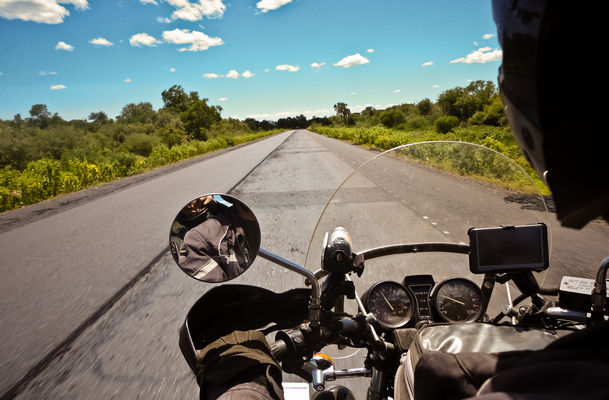
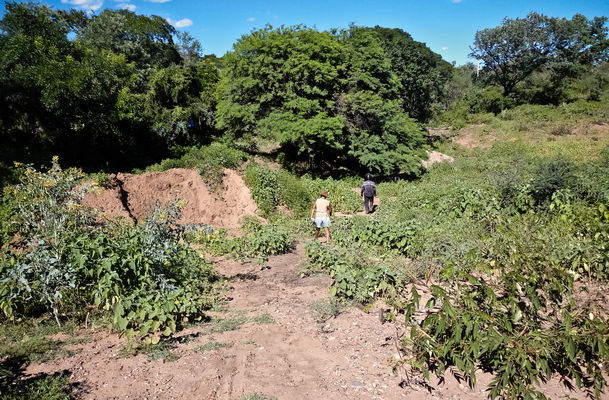
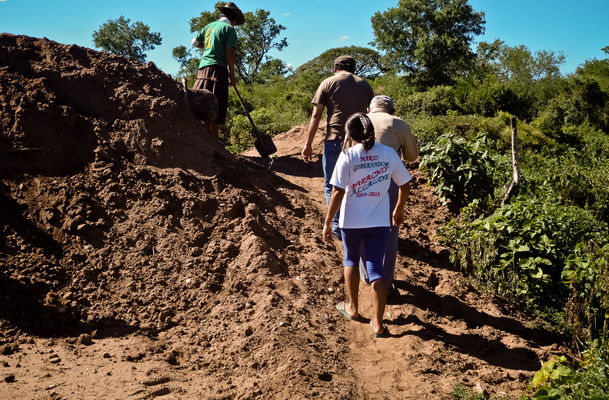
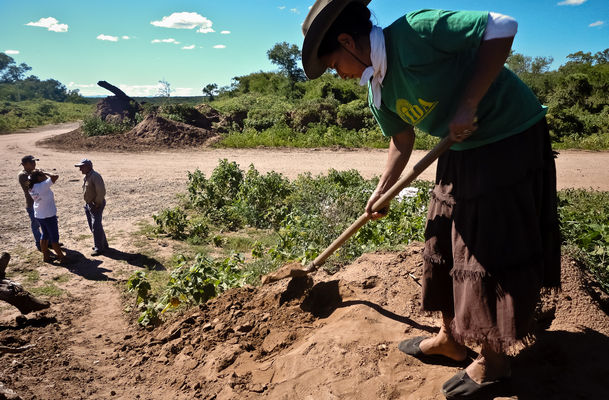
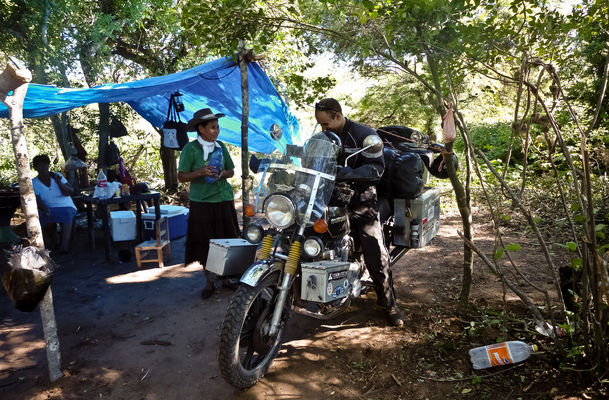
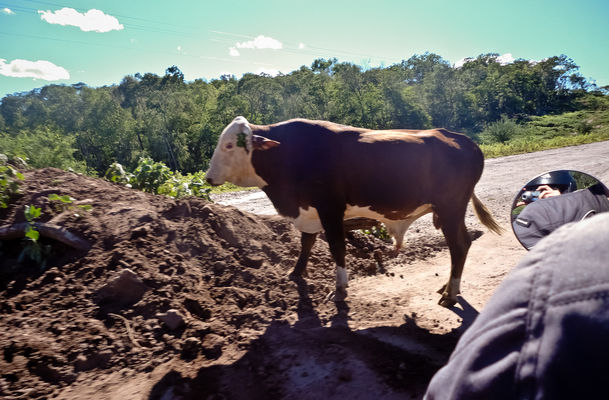
Comment
-
 DanTheMan
DanTheMan
Bolivia is off my list too. The church I belong to used to support missionaries in Bolivia, they had airplanes to get to the remote areas. Due to the thieves in gov't and everywhere else the missionary organization had to shut down all operations there and desert the people that they were helping. They had missionaries kidnapped and tortured as well, I think one was murdered. Whether you agree or disagree with what missionaries do, this is still unacceptable.
Comment
-
 shirazdrum
shirazdrum
The Damned Bolivia – Part Four
We made it to Villamontes and after an early dinner of really bad chicken and rice, we found a lubricant shop to buy some gear oil. As I was coming to stop in front of the shop, my left arm went completely numb. I could neither move it nor hold it up, and an excruciating pain started to shoot up from my wrest. I pushed the kill switch and stopped the bike and got off holding my arm. Lourdes thought I was having a heart attack and was hysterical, but I had no chest pain. It was just my arm that was a dead limb and I had no idea what was causing it. After about 15 minutes some sense started to come back and I could move my fingers again. I filled up the transmission and called it a day as I couldn’t risk riding with something like that happening at high speed.
Our options as finding hotels weren’t great, there was a whorehouse for $8 a night without a fan (I really felt sorry for the whores), a rundown Favela looking motel with fan for $10 and a Holliday-Inn looking hotel for $150 a night. We settled in the Favela as it at least had a yard with a gate for the bike. After a shower under a cold 6-trickle-a-minute showerhead, I headed downstairs to take care of the poor bike after this hell. I pulled out the air filter and with it came out the whole Arabian Desert. How this bike survived through this dust and sand is beyond me but special thanks goes to Jeff at Z1 Enterprises for sending me a K&N air filter instead of the original foam one. Not a particle of sand was anywhere passed the filter.
I washed the filter with soap and toothbrush for half an hour and hung it to dry, topped off the oil, cleaned the bike as well as I could, and crashed in the oven-like room to the sound of the mosquitoes whizzing by.
Now that we were inside Bolivia and well rested, we went out for lunch before heading north. On recommendation of the locals, we stopped at a little seafood (actually just fish from the muddy river below the bridge) restaurant and took the first swing at the Bolivian cuisine. We kept it simple, fish, rice and a salad of lettuce, tomato and onions. We ended up with cold fish, salad with rotten tomatoes minus the lettuce, and a bowl of boiled cold popcorn that was impossible to eat. We asked the waitress for the rice and got an evil eye and she disappeared and never came back.
Note to self: Never ask for food recommendation from locals in Bolivia again.
The road going north was paved with a nice coat of asphalt which was refreshing. The scenery started to change as we climbed up to higher altitudes and the weather cooled off. We rode passed herds of horses, wandering cows and beautiful pastures with the mountains in the distance. But something kept bothering me. Every so often I would start to smell a strong stench and shortly after a village or a town would pop in the view. It took me a while to figure out the pattern but it was horrible. I would start to smell the garbage before the city sign was in view and long after the urban area ended. My goal became racing for the countryside as soon as possible for some fresh air.
The triple price for gas was getting on my nerve, and I being still ****ed off at the treatment we received so far, decided to not obey the gringo pricing. We found a few empty 2 liter coke bottles (not a hard task at all, considering there’s a pile of garbage at any given human settlement in Bolivia) and we set to work. I would park the bike out of sight and Lourdes would go to the gas station to fill up the bottles at a normal price. Then we would dump the gas in the tank and repeat the process until it was full. We needed a few big jugs to be able to fill up the 6 gallon tank in one shot so we looked around for some. The first 4 liter jug we found was an empty oil jug, and the guy happily gave it to us. We thanked him and we were about to leave as he stopped us and said, $2 for the jug. $2 for a used plastic oil jug? From then on, I learned a very important lesson. As a tourist, you are a walking dollar sign in Bolivia.
The next jug shopping proved to be the same, this time a 7 or 8 year old girl asked for the extortion fees for useless plastic jugs. I wonder if it ever occurred to these people that giving away a piece of their garbage for a reasonable price or god forbid for free would help out another human being?
Armed with 2 five liter, 1 four liter, and three 2 liter coke bottles, we solved the gas prices for good. Although I wouldn’t pay a penny for the industrial sewage they called gas in any modern country, we had to live with it. It broke my heart every time I dumped this dirty gas into the tank as I could see the stuff floating in it that didn’t belong in refined petroleum. I would let the bottles settle down and I always dumped the last part out as it had way too much crap in it.
Around 7 pm we arrived in a remote village and bought some very questionable meat from a lady with no teeth for dinner, and hit the road. The plan was to camp out that night in the countryside and we started to look for a suitable spot. Both sides of the road were farm lands with a few shacks here and there. We stopped at one of the houses to ask for permission to camp on their land and the answer was no. So we went further down to the next farm and asked for the same and the answer was no again. Not only we weren’t welcome in the country from the start, now the regular people would deny a 4 foot by 6ft ground to travelers for a night sleep in their own tent. Something so uncustomary in Latin America.
Needless to say, we had no luck finding a spot to camp and quite frankly I was hesitant to camp anywhere knowing how inhospitable these people where. I saw a sign to my left for Vallegrande, where Ernesto Guevara was killed some 40 years ago and wondered about the very same people who ratted him out. Hospitality and decency is a rare commodity in Bolivia so we stopped searching for it.
We made it to another stinky town called Cabezas, and looked for a hotel. The only joint in town was a big open style motel with a courtyard in the middle. It had a safe spot with gates and the rate was 25 Bolivianos per person. We took a room and I went from the back alley to bring in the bike. The alley was filled with the all familiar soft sand and I fell on my ass right in front of the gate. When the bike fell, my tankbag was pressing against the horn button and the hotel owner, a very big guy (equivalent of a Bigfoot sighting in Bolivia), walked out to see what was going on. He saw me struggling with picking up the loaded bike, took one look at me and without a word turned around and went inside. I suppose I would be expecting a help in any normal country, but by now I was used to it. Lourdes came out and we picked up the bike and settled in.
Our room had no fan, the water was shut off, the beds were filled with moldy corn husk, which were harder than rock with a permanent hole under our backs, and as a lullaby you could hear the bugs moving under the sheets. Still better than begging a Bolivian peasant for a grave size space on their land for a night. I always thought that posted signs in countries are the best indicators of human development. These signs always show the level of civility, ignorance and social issues and Bolivia is full of signs. The sign behind our door read:
“Forbidden to take the covers or sheets
Do not stain the beds
Do not scratch the furnitures or the walls”
As much as I tried to like this country, they always came back with something more to change my mind. Stay tuned.
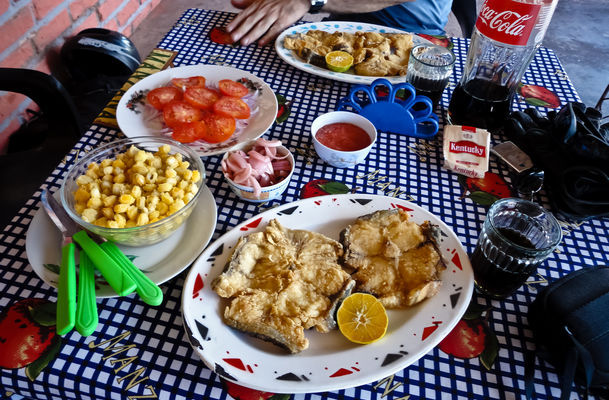
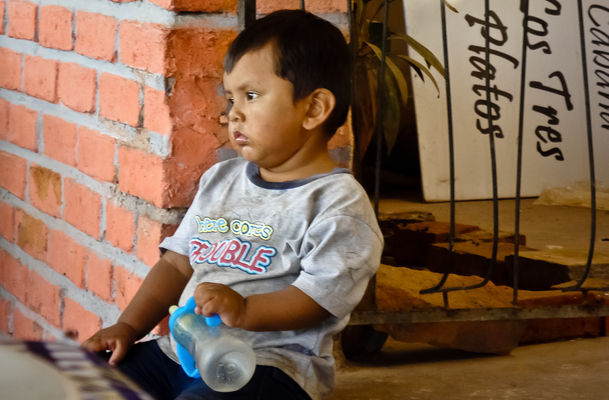
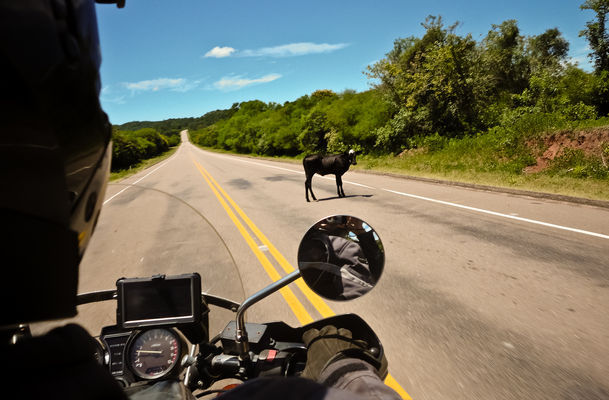

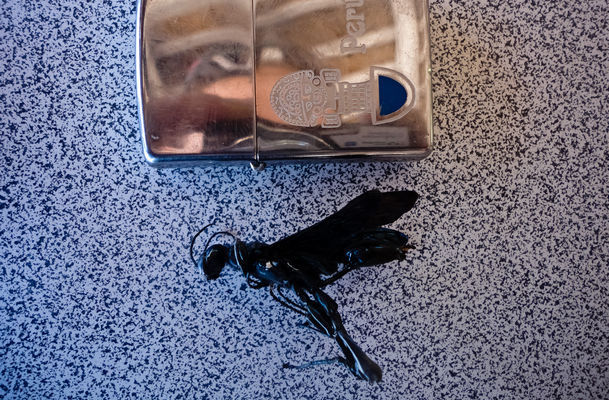
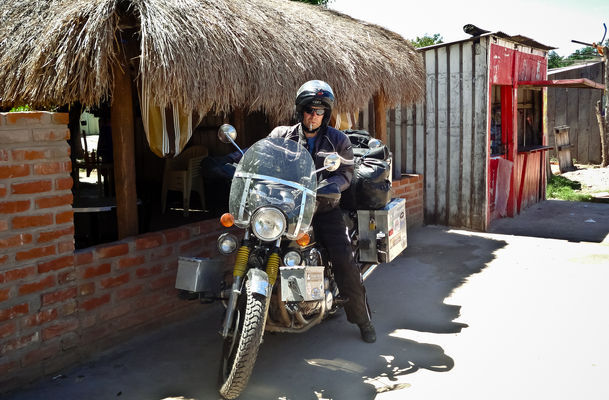
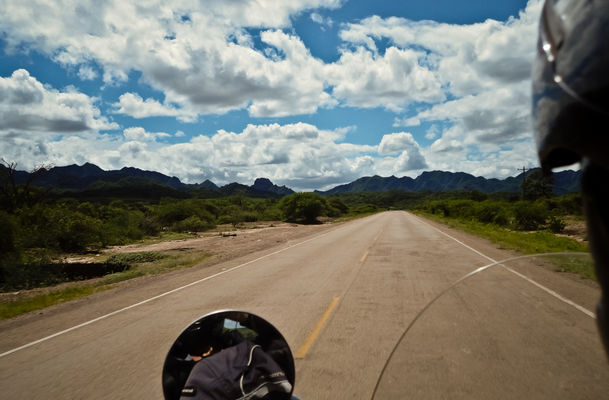
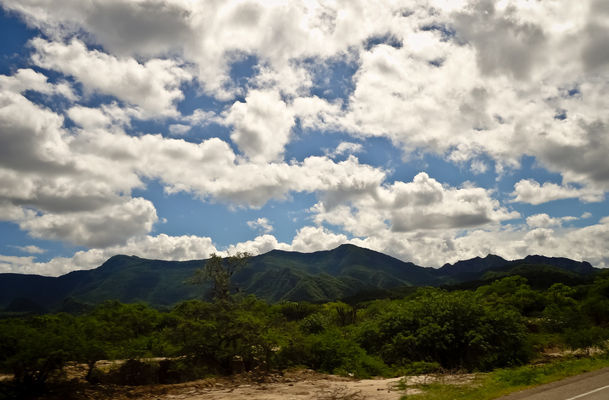
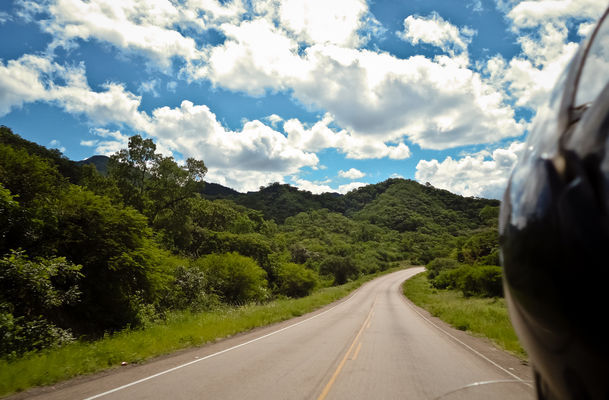
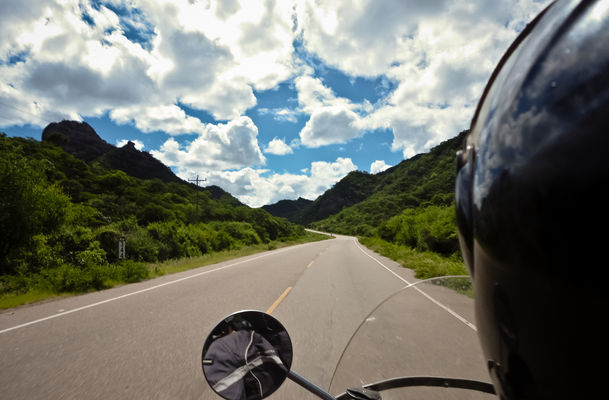
Comment
-
 shirazdrum
shirazdrum
.png)
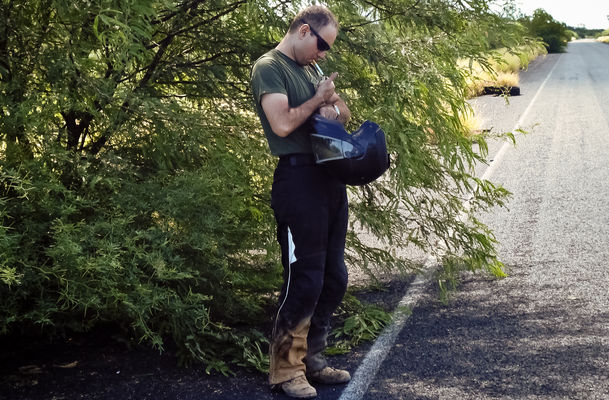
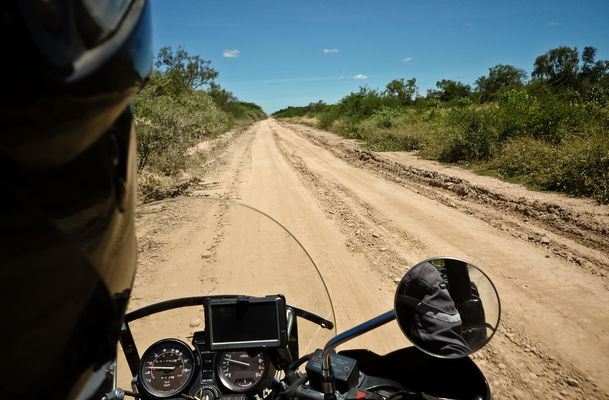


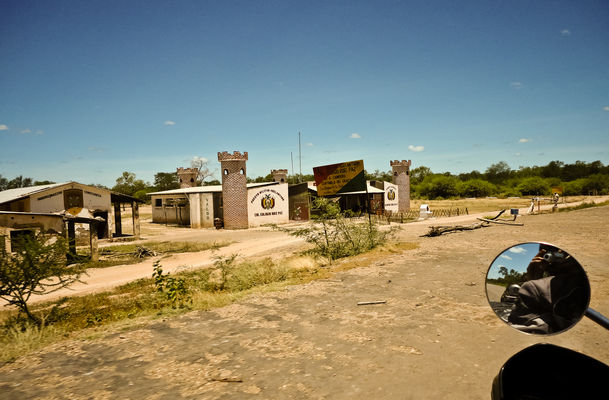
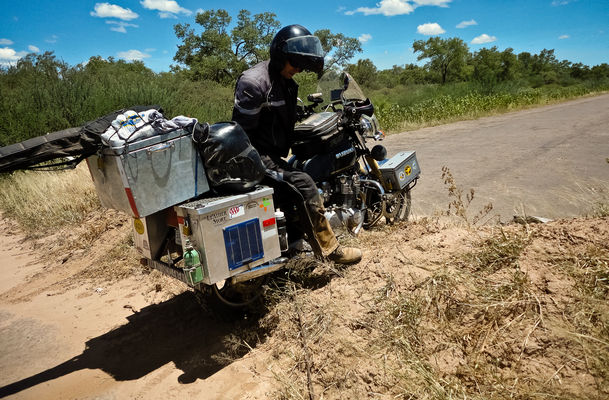

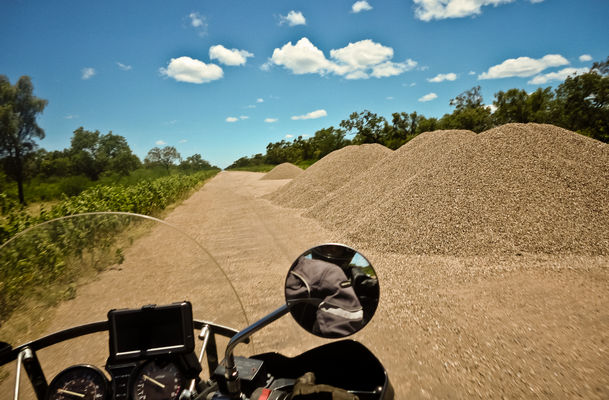

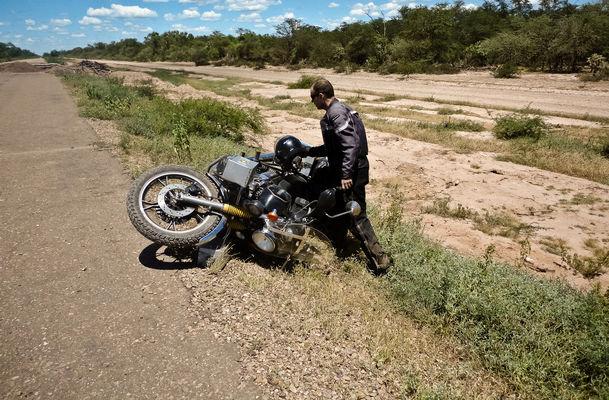
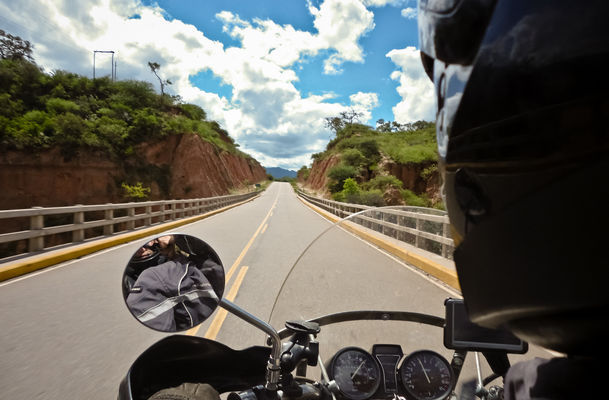
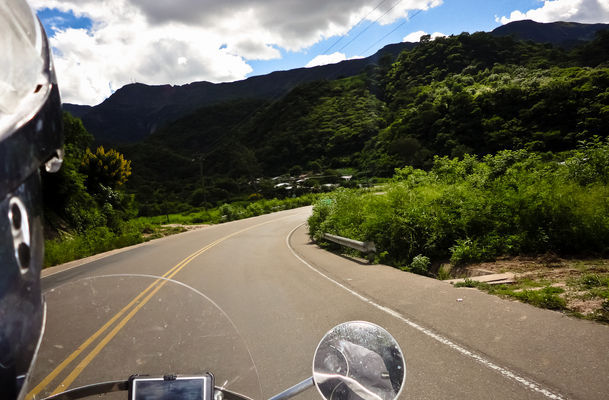
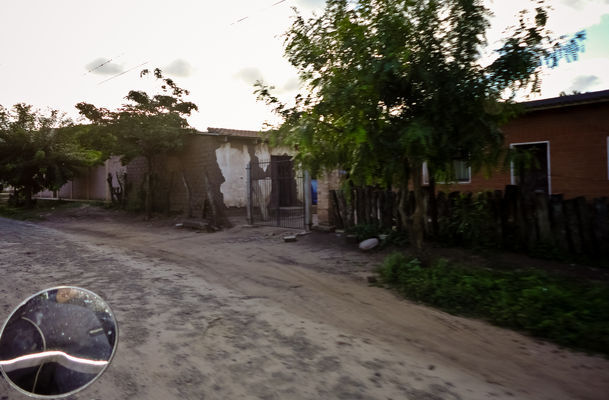
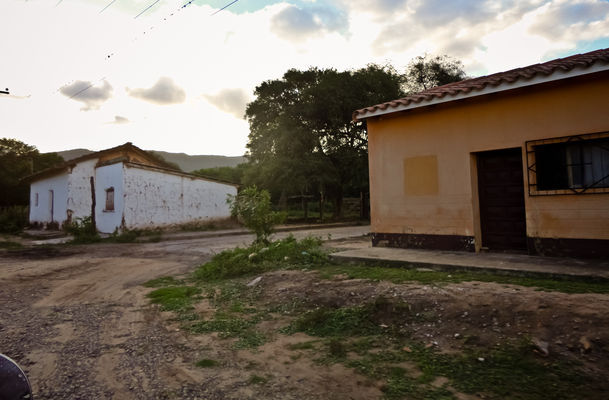
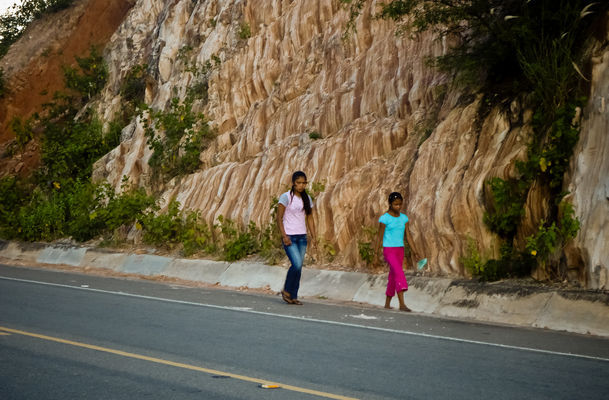

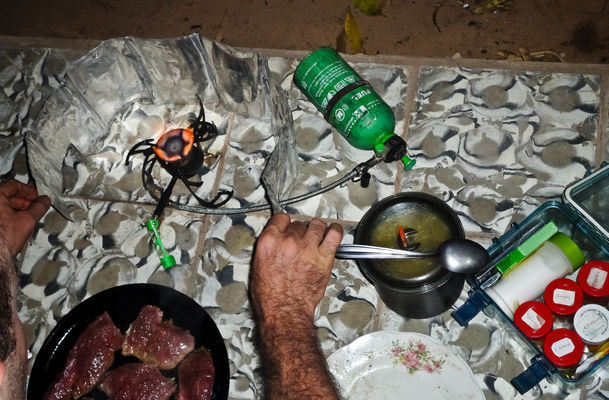
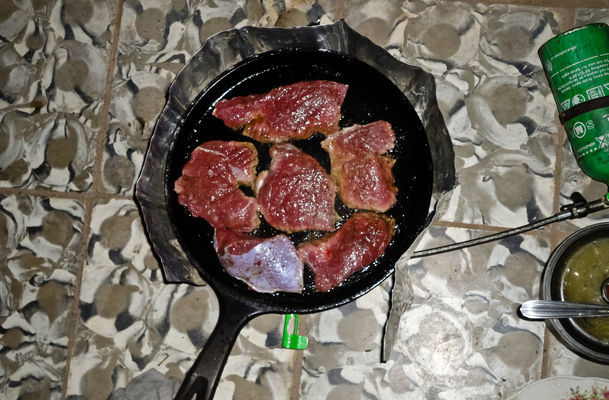

Comment